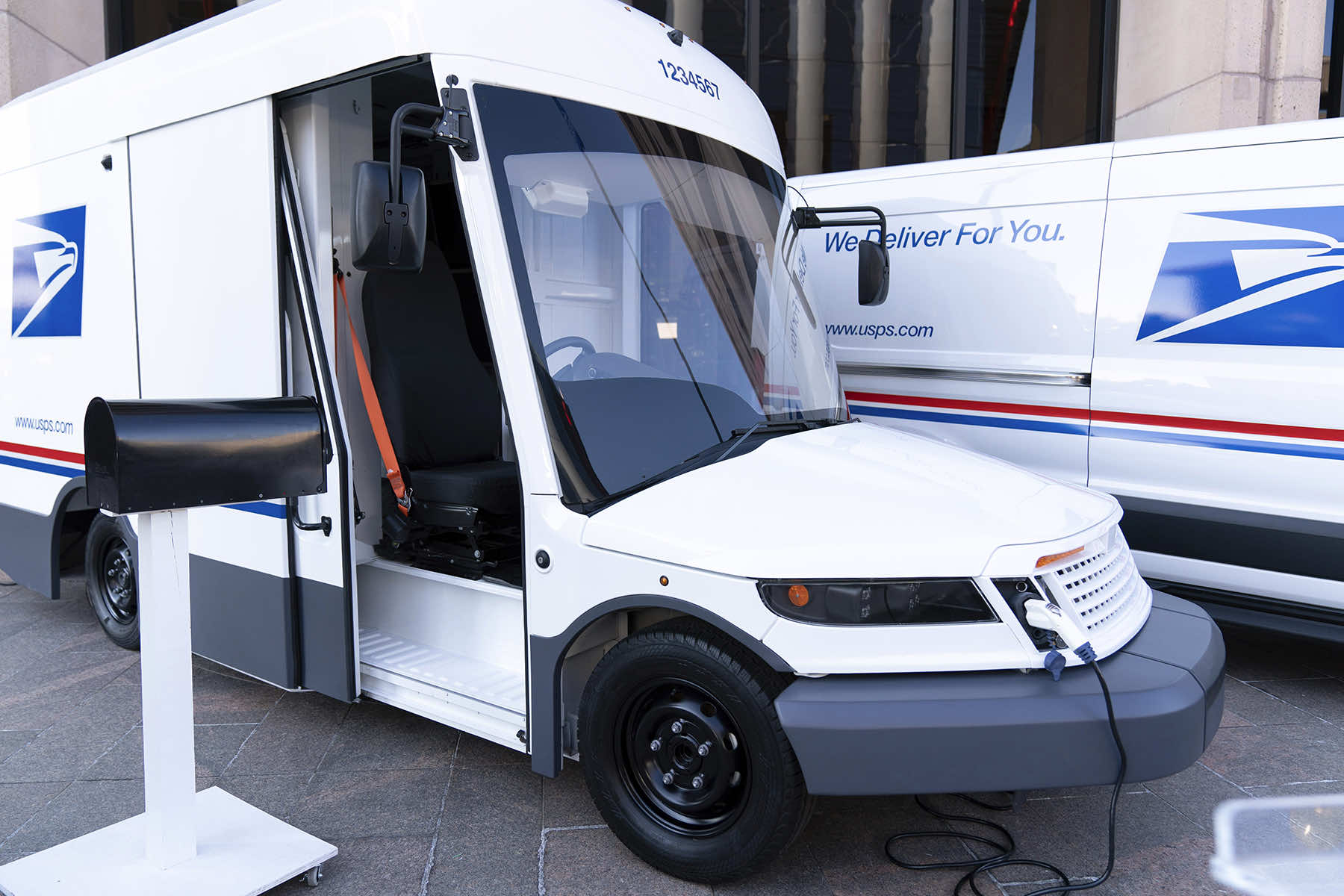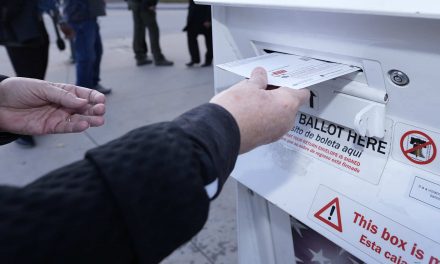
In a major boost for President Joe Biden’s pledge to eliminate gas-powered vehicles from the sprawling federal fleet, the Postal Service said it will sharply increase the number of electric-powered delivery trucks, and will go all-electric for new purchases starting in 2026.
In a statement by scandal-plagued Postmaster General Louis DeJoy, the post office said it is spending nearly $10 billion to electrify its aging fleet, including installing a modern charging infrastructure at hundreds of postal facilities nationwide and purchasing at least 66,000 electric delivery trucks in the next five years.
The spending includes $3 billion in funding approved under a landmark climate and health policy adopted by Congress last year.
The White House hailed the announcement in December as a way to sustain reliable mail service to Americans while modernizing the fleet, reducing operating costs and clearing the air in neighborhoods across the country.
“This is the Biden climate strategy on wheels and the U.S. Postal Service delivering for the American people,” said White House climate adviser Ali Zaidi.
“It’s wonderful that the Postal Service will be at the forefront of the switch to clean electric vehicles, with postal workers as their ambassadors,” said John Podesta, a senior White House adviser. “It will get people thinking … if the postal worker is driving an EV, I can drive an EV, too.”
The U.S. government operates the largest vehicle fleet in the world, and the Postal Service is the largest fleet in the federal government with more than 220,000 vehicles, one-third of the overall U.S. fleet. The USPS announcement “sets the bar for the rest of the federal government, and, importantly, the rest of the world,” said Brenda Mallory, chair of the White House Council on Environmental Quality.
DeJoy, a Republican donor and political ally of former President Donald Trump, came under fire for an initial plan that included purchase of thousands of gas-powered trucks, said the Postal Service is required by law to deliver mail and packages to 163 million addresses six days a week and to cover its costs in doing so.
The new fleet plan is “operationally suitable, financially viable and climate friendly,” DeJoy said.
The White House and Environmental Protection Agency previously slammed the Postal Service, an independent agency, for underestimating greenhouse gas emissions and failing to consider more environmentally sound alternatives.
Environmental groups and more than a dozen states, including California, New York, and Illinois, sued to halt the initial plan and asked judges to order a more thorough environmental review before the Postal Service moves forward with the fleet-modernization program. The Postal Service later adjusted its plan to ensure that half of its initial purchase of 50,000 next-generation vehicles would be electric.
Katherine García, director of the Sierra Club’s clean transportation campaign, called the plan “a massive win for climate and public health” and a common-sense decision.
“Instead of receiving pollution with their daily mail packages, communities across the U.S. will get the relief of cleaner air,” she said.
“Every neighborhood, every household in America deserves to have electric USPS trucks delivering clean air with their mail, and today’s announcement takes us almost all the way there,” said Adrian Martinez, a senior attorney for Earthjustice, one of the groups that sued the Postal Service.
Senator Tom Carper, D-DE, chairman of the Senate Environment and Public Works Committee, said the Postal Service announcement “represents real progress,” but said, “I’m still not ready yet to call this job finished. We must keep up the pressure until 100% of USPS’s delivery fleet runs on clean energy.”
Senator Gary Peters, D-MI, who chairs the Senate Homeland Security and Governmental Affairs Committee, said he will “push for every part of the postal fleet to be environmentally friendly and union-made.”
In addition to modern safety equipment, the new delivery vehicles are taller, making it easier for postal carriers to grab the packages that make up a greater share of volume. They also have improved ergonomics and climate control.













